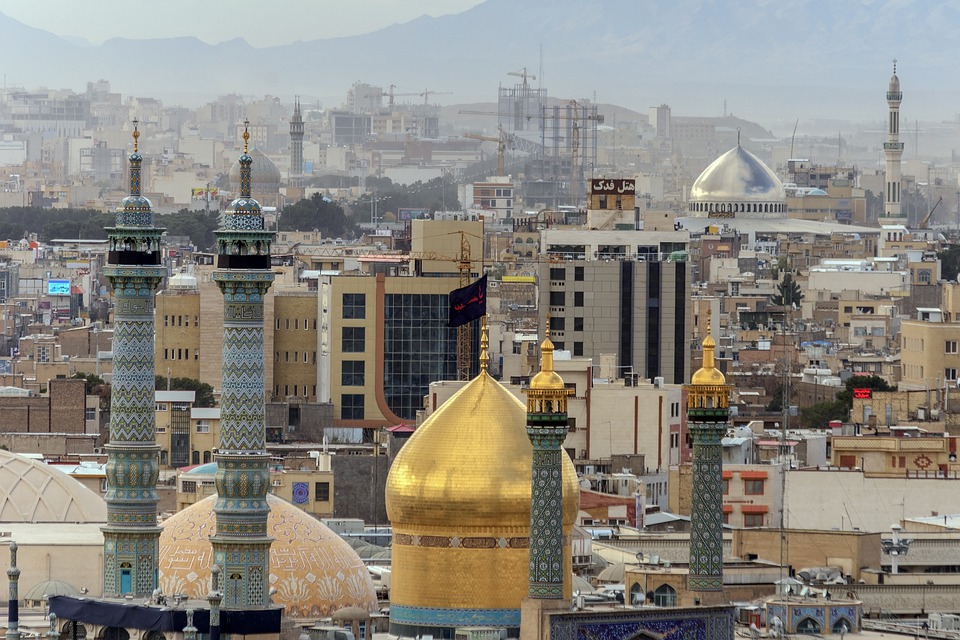In the latest flare-up of tensions, Iran has installed civil defense systems in its 51 cities. Along with civil defenses, Tehran has also ramped up its air defense readiness.
Iranian military officials said Saturday that 51 cities are now equipped with civil defense systems and boosted the readiness of the country’s air defenses to counter any possible threats.
According to Iranian media outlets, deputy defense minister Brigadier General Mehdi Farahi said the civil defense systems would enable the country to “identify and monitor threats by using round-the-clock software according to the type of threat and risk.”
“These days, depending on the strength of countries, the form of battles has become more complicated,” said Farahi. Farahi added that the traditional wars were now replaced by other mediums such as cyber, biological, and radioactive attacks. Farahi did not cite which countries he referred to as threatening Iran.
“The country’s airspace today is the safest for licensed flights and the most insecure for would-be aggressors,” said Brigadier General Qader Rahimzadeh, who leads Iran’s air defense headquarters. Rahimzadeh said readiness was high in his forces.
While no countries were named, Iran has accused both Israel and the United States of launching cyber-attacks that targeted the country’s infrastructure. Iran has also accused Israel of sabotaging its nuclear facilities. Israel has not confirmed or denied the accusations of sabotage.
Tehran and Washington have long had disputes even as both countries are looking to restart the 2015 nuclear deal. In the latest incident of strained relations, Iran seized US military sail drones in the Red Sea last week.
Also last week, the US Navy said it intercepted an attempt by Iran’s Revolutionary Guards’ naval forces to capture an unmanned surface vessel operated by the US 5th Fleet in the Gulf.
Friday last week, the White House rejected linking the potential revival of the 2015 nuclear agreement with the closure of the probe by the United Nations nuclear watchdog a day after Tehran reopened the issue.
White House Press Secretary Karine Jean-Pierre said there must not be a link between reviving the Joint Comprehensive Plan of Action and Iran’s “legal obligations under the Non-Proliferation Treaty.”



 EU Urges Maximum Restraint in Iran Conflict Amid Fears of Regional Escalation and Oil Supply Disruption
EU Urges Maximum Restraint in Iran Conflict Amid Fears of Regional Escalation and Oil Supply Disruption  Does international law still matter? The strike on the girls’ school in Iran shows why we need it
Does international law still matter? The strike on the girls’ school in Iran shows why we need it  Argentina Tax Reform 2026: President Javier Milei Pushes Lower Taxes and Structural Changes
Argentina Tax Reform 2026: President Javier Milei Pushes Lower Taxes and Structural Changes  Failure of US-Iran talks was all-too predictable – but Trump could still have stuck with diplomacy over strikes
Failure of US-Iran talks was all-too predictable – but Trump could still have stuck with diplomacy over strikes  Trump Launches Operation Epic Fury: U.S. Strikes on Iran Mark High-Risk Shift in Middle East
Trump Launches Operation Epic Fury: U.S. Strikes on Iran Mark High-Risk Shift in Middle East  Marco Rubio to Brief Congress After U.S.-Israeli Strikes on Iran
Marco Rubio to Brief Congress After U.S.-Israeli Strikes on Iran  Trump Announces U.S. Strikes on Iran Navy as Conflict Escalates
Trump Announces U.S. Strikes on Iran Navy as Conflict Escalates  Israel Strikes Hezbollah Targets in Lebanon After Missile and Drone Attacks
Israel Strikes Hezbollah Targets in Lebanon After Missile and Drone Attacks  U.S. Deploys Tomahawks, B-2 Bombers, F-35 Jets and AI Tools in Operation Epic Fury Against Iran
U.S. Deploys Tomahawks, B-2 Bombers, F-35 Jets and AI Tools in Operation Epic Fury Against Iran  Suspected Drone Strike Hits RAF Akrotiri Base in Cyprus, Causing Limited Damage
Suspected Drone Strike Hits RAF Akrotiri Base in Cyprus, Causing Limited Damage  U.S.-Israel Strike on Iran Escalates Middle East Conflict, Trump Claims Khamenei Killed
U.S.-Israel Strike on Iran Escalates Middle East Conflict, Trump Claims Khamenei Killed  UK Accepts U.S. Request to Use British Bases for Defensive Strikes on Iranian Missiles
UK Accepts U.S. Request to Use British Bases for Defensive Strikes on Iranian Missiles  Netanyahu Suggests Iran’s Supreme Leader Khamenei May Have Been Killed in Israeli-U.S. Strikes
Netanyahu Suggests Iran’s Supreme Leader Khamenei May Have Been Killed in Israeli-U.S. Strikes  Zelenskiy Urges Change in Iran After U.S. and Israeli Strikes, Cites Drone Support for Russia
Zelenskiy Urges Change in Iran After U.S. and Israeli Strikes, Cites Drone Support for Russia  Macron Urges Emergency UN Security Council Meeting as US-Israel Strikes on Iran Escalate Middle East Tensions
Macron Urges Emergency UN Security Council Meeting as US-Israel Strikes on Iran Escalate Middle East Tensions  HHS Adds New Members to Vaccine Advisory Panel Amid Legal and Market Uncertainty
HHS Adds New Members to Vaccine Advisory Panel Amid Legal and Market Uncertainty 































